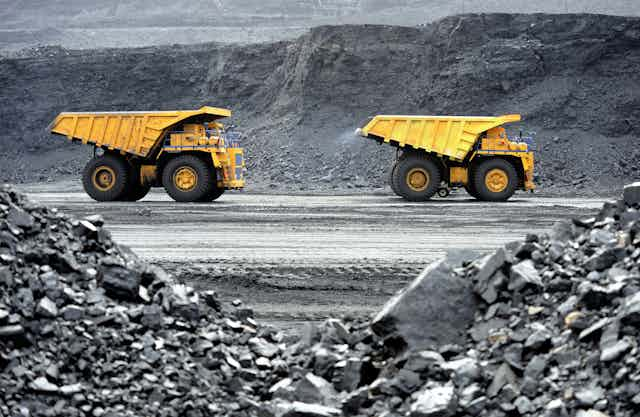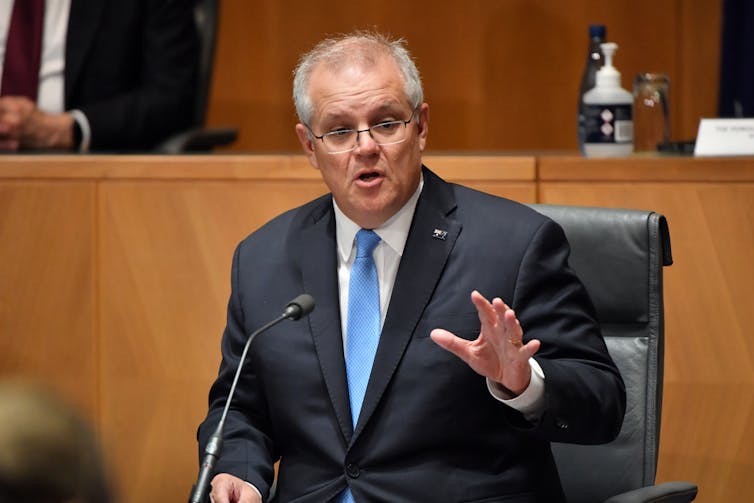

Jeremy Moss receives funding from the Australian Research Council
UNSW Sydney apporte un financement en tant que membre adhérent de The Conversation AU.
Voir les partenaires de The Conversation France
On Saturday, more than 70 global leaders came together at the UN’s Climate Ambition Summit, marking the fifth anniversary of the Paris Agreement.
Prime Minister Scott Morrison was denied a speaking slot, in recognition of Australia’s failure to set meaningful climate commitments. Meanwhile, the European Union and the UK committed to reduce domestic emissions by 55% and 68% respectively by 2030.
As welcome as these new commitments are, the Paris Agreement desperately needs to be updated. Since it was passed, the production and supply of fossil fuels for export has continued unabated. And the big exporters — such as Norway, Canada, the US, Russia, Saudi Arabia and of course Australia — take no responsibility for the emissions created when those fossil fuels are burned overseas.
It’s time this changed. Australia is the world’s biggest coal exporter. And in 2019, emissions from fossil fuels exported by this nation, as well as the US, Norway and Canada, accounted for more than 10% of total world emissions, according to calculations from a research project on Australia’s carbon budget at the University of NSW, which I run. Exporting nations are not legally responsible for these offshore emissions, but their actions are clearly at odds with the climate emergency.
A 2019 UN report notes governments are planning to extract 50% more fossil fuels than is consistent with meeting a 2°C target and an alarming 120% more than a 1.5°C target, by 2030. Coal is the main contributor to this supply overshoot.

For Australia, this must mean we include the reduction in “exported emissions” as part of any net-zero target. Australia’s exported emissions are double our domestic emissions – a situation that cannot continue.
Top of the list of what’s needed, is the phasing out of generous subsidies for fossil fuel producers. The billions of dollars currently spent annually in Australia on subsidising and encouraging fossil fuel exports are simply not compatible with the aims and spirit of the Paris Agreement.
Phasing out the supply of fossil fuels also needs to occur in a way that doesn’t just pay the current big suppliers to stop. Governments implementing a transition ought to think very carefully about how to fairly deploy scarce resources to ensure a just transition.
Last but not least, governments need to accept that the strong influence fossil fuel corporations wield over the political process is hindering global efforts to address climate change. The donations , rotation of industry staff to government positions and influence of fossil fuel lobby groups cannot lead to good decisions for the climate.
Placing a ban on such influence, particularly at future climate negotiations, would go a long way towards addressing the undue influence of the fossil fuel industry.
Until the fossil fuel export industry is subject to demanding targets, and made to accept responsibility for the emissions associated with their products, Earth will continue on its highly dangerous global warming trajectory.